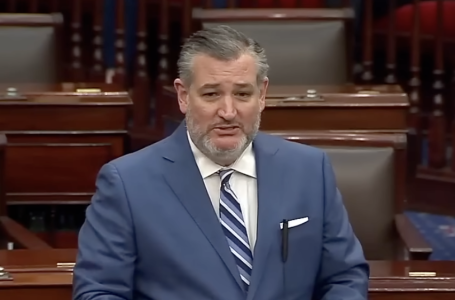Senators back surprise measure offering financial relief to millions
- Replies 0
In an unexpected display of unity, the US Senate just made a surprising move that could put more money in the hands of working Americans.
It’s the kind of decision you don’t see every day—especially one with unanimous support from both sides of the aisle.
Whether you’ve ever left a few dollars behind after a good meal or depended on those dollars yourself, this quiet change could have a big ripple effect across neighborhoods and dinner tables alike.
A Surprise on Capitol Hill
The No Tax on Tips Act wasn’t expected to sail through the Senate quite so smoothly. Tax bills usually get bogged down in endless debate, amendments, and political wrangling.
But on Tuesday, Nevada Senator Jacky Rosen brought the bill up for a “unanimous consent” vote.
This method is usually done for more mundane matters—a process so simple that a single objection could have stopped it in its tracks.
Instead, not one of the 99 other senators raised a hand in protest. The bill passed in a flash, sending shockwaves through Washington and beyond.

What’s in the Bill?
Here’s the heart of the matter: The No Tax on Tips Act would allow workers to deduct up to $25,000 in cash tips from their taxable income, as long as those tips are reported to employers for payroll tax purposes.
The deduction is limited to employees earning $160,000 or less in 2025, with that cap set to rise with inflation in the years ahead.
It was proposed in January by Sen. Ted Cruz, R-Texas, and a bipartisan group of co-sponsors, such as Nevada's two Democratic senators, Jacky Rosen and Catherine Cortez Masto.
So, if you’re a server, bartender, delivery driver, or anyone else who relies on tips, you could see a significant reduction in your tax bill—potentially putting hundreds or even thousands of dollars back in your pocket each year.
Also read: Think Trump’s tariffs mean lower taxes for you? What you need to know, according to experts
Why Now?
The idea of untaxed tips isn’t new, but it gained fresh momentum during the last presidential campaign.
Both Donald Trump and Kamala Harris voiced support for the concept, and the National Restaurant Association quickly threw its weight behind the bill.
With the cost of living rising and many Americans feeling squeezed, the promise of immediate financial relief for tipped workers struck a chord.
"Nevada has more tipped workers per capita than any other state. So this bill would mean immediate financial relief for countless hard-working families," Rosen stated. "No Tax on Tips was one of President Trump’s key promises to the American people, which he unveiled in my state of Nevada. And I am not afraid to embrace a good idea, wherever it comes from."

The Debate: Relief or Red Herring?
Of course, not everyone is cheering. Critics—including some labor advocates and tax policy experts—argue that the bill is more symbolic than substantial.
Many tipped workers already earn so little that they don’t pay much, if any, federal income tax.
Others worry that the change could encourage employers to reclassify regular wages as “tips” to save on taxes, potentially undermining workers’ rights and pay stability.
There’s also a broader debate about the “two-tiered” pay system in the US service industry.
Also read: Will your Social Security checks get bigger? The truth behind the GOP tax bill
Some activists want to do away with the lower “tipped minimum wage” altogether, replacing it with a higher base wage for all workers—tips or no tips.
That fight is far from over, as seen in recent state-level battles like Michigan’s, where lawmakers kept the subminimum wage system in place.
What About Consumers?
If you’re a diner, a hotel guest, or someone who’s ever felt “tip fatigue” from endless requests for gratuities, you might be wondering how this affects you. The answer: it’s complicated.
Some hope that untaxed tips will ease the financial pressure on workers, possibly reducing the need for ever-higher gratuities. Others worry it could further entrench the tipping culture that’s become a hot topic in recent years.
Source: The Hill / Youtube.
What Happens Next?
The bill now heads to the House of Representatives, where its future is bright but not guaranteed.
House Republicans have been eyeing the proposal as part of a larger package of Trump-backed tax cuts, but the strong bipartisan support in the Senate means it could pass as a standalone measure.
Either way, the odds are good that the No Tax on Tips Act will become law in the near future.
Senator Ted Cruz, the bill’s lead sponsor, summed up the mood, saying, “Whether it passes free-standing or as part of the bigger bill, one way or another, No Tax on Tips is going to become law and give real relief to hard-working Americans.”
Senate Minority Leader Chuck Schumer, D-NY,, also rejoiced with the passage of the legislation, crediting Rosen.
"Working Americans — from servers, to bartenders, delivery drivers, and everything in between — work hard for every dollar they earn and are the ones who deserve tax relief, not the ultra-rich," Schumer said in a statement. "While President Trump and Republicans push tax breaks for billionaires and stick the middle class with the bill, Senate Democrats are standing strong to protect America’s working families."
Read next: A new proposal could bring major changes to property tax bills for older homeowners

Has tipping helped you or your family? Do you think this bill will make a real difference? And what other changes would you like to see in how America treats its workers? Share your thoughts, stories, and questions in the comments below!
It’s the kind of decision you don’t see every day—especially one with unanimous support from both sides of the aisle.
Whether you’ve ever left a few dollars behind after a good meal or depended on those dollars yourself, this quiet change could have a big ripple effect across neighborhoods and dinner tables alike.
A Surprise on Capitol Hill
The No Tax on Tips Act wasn’t expected to sail through the Senate quite so smoothly. Tax bills usually get bogged down in endless debate, amendments, and political wrangling.
But on Tuesday, Nevada Senator Jacky Rosen brought the bill up for a “unanimous consent” vote.
This method is usually done for more mundane matters—a process so simple that a single objection could have stopped it in its tracks.
Instead, not one of the 99 other senators raised a hand in protest. The bill passed in a flash, sending shockwaves through Washington and beyond.

The US Senate unexpectedly passed the No Tax on Tips Act unanimously, allowing tipped workers to claim a tax deduction of up to $25,000 on cash tips reported to employers, but only for those earning less than $160,000 per year. Image source: Dan Smedley / Unsplash.
What’s in the Bill?
Here’s the heart of the matter: The No Tax on Tips Act would allow workers to deduct up to $25,000 in cash tips from their taxable income, as long as those tips are reported to employers for payroll tax purposes.
The deduction is limited to employees earning $160,000 or less in 2025, with that cap set to rise with inflation in the years ahead.
It was proposed in January by Sen. Ted Cruz, R-Texas, and a bipartisan group of co-sponsors, such as Nevada's two Democratic senators, Jacky Rosen and Catherine Cortez Masto.
So, if you’re a server, bartender, delivery driver, or anyone else who relies on tips, you could see a significant reduction in your tax bill—potentially putting hundreds or even thousands of dollars back in your pocket each year.
Also read: Think Trump’s tariffs mean lower taxes for you? What you need to know, according to experts
Why Now?
The idea of untaxed tips isn’t new, but it gained fresh momentum during the last presidential campaign.
Both Donald Trump and Kamala Harris voiced support for the concept, and the National Restaurant Association quickly threw its weight behind the bill.
With the cost of living rising and many Americans feeling squeezed, the promise of immediate financial relief for tipped workers struck a chord.
"Nevada has more tipped workers per capita than any other state. So this bill would mean immediate financial relief for countless hard-working families," Rosen stated. "No Tax on Tips was one of President Trump’s key promises to the American people, which he unveiled in my state of Nevada. And I am not afraid to embrace a good idea, wherever it comes from."

The new legislation was introduced by Republican Senator Ted Cruz with bipartisan support, and strongly championed by Nevada Democrat Jacky Rosen, given Nevada’s high proportion of tipped workers. Image source: Forbes Breaking News / Youtube.
The Debate: Relief or Red Herring?
Of course, not everyone is cheering. Critics—including some labor advocates and tax policy experts—argue that the bill is more symbolic than substantial.
Many tipped workers already earn so little that they don’t pay much, if any, federal income tax.
Others worry that the change could encourage employers to reclassify regular wages as “tips” to save on taxes, potentially undermining workers’ rights and pay stability.
There’s also a broader debate about the “two-tiered” pay system in the US service industry.
Also read: Will your Social Security checks get bigger? The truth behind the GOP tax bill
Some activists want to do away with the lower “tipped minimum wage” altogether, replacing it with a higher base wage for all workers—tips or no tips.
That fight is far from over, as seen in recent state-level battles like Michigan’s, where lawmakers kept the subminimum wage system in place.
What About Consumers?
If you’re a diner, a hotel guest, or someone who’s ever felt “tip fatigue” from endless requests for gratuities, you might be wondering how this affects you. The answer: it’s complicated.
Some hope that untaxed tips will ease the financial pressure on workers, possibly reducing the need for ever-higher gratuities. Others worry it could further entrench the tipping culture that’s become a hot topic in recent years.
Source: The Hill / Youtube.
What Happens Next?
The bill now heads to the House of Representatives, where its future is bright but not guaranteed.
House Republicans have been eyeing the proposal as part of a larger package of Trump-backed tax cuts, but the strong bipartisan support in the Senate means it could pass as a standalone measure.
Either way, the odds are good that the No Tax on Tips Act will become law in the near future.
Senator Ted Cruz, the bill’s lead sponsor, summed up the mood, saying, “Whether it passes free-standing or as part of the bigger bill, one way or another, No Tax on Tips is going to become law and give real relief to hard-working Americans.”
Senate Minority Leader Chuck Schumer, D-NY,, also rejoiced with the passage of the legislation, crediting Rosen.
"Working Americans — from servers, to bartenders, delivery drivers, and everything in between — work hard for every dollar they earn and are the ones who deserve tax relief, not the ultra-rich," Schumer said in a statement. "While President Trump and Republicans push tax breaks for billionaires and stick the middle class with the bill, Senate Democrats are standing strong to protect America’s working families."
Read next: A new proposal could bring major changes to property tax bills for older homeowners
Key Takeaways
- The US Senate unexpectedly passed the No Tax on Tips Act unanimously, allowing tipped workers to claim a tax deduction of up to $25,000 on cash tips reported to employers, but only for those earning less than $160,000 per year.
- The new legislation was introduced by Republican Senator Ted Cruz with bipartisan support, and strongly championed by Nevada Democrat Jacky Rosen, given Nevada’s high proportion of tipped workers.
- Critics argue the law may have limited impact for some hourly workers who don’t earn enough to pay federal taxes and could potentially incentivize employers to reclassify wages as tips, while others fear it strengthens the controversial two-tiered wage system.
- The bill now heads to the House of Representatives, where broad bipartisan support increases its chances of becoming law, potentially fulfilling one of Donald Trump’s key campaign promises for financial relief to hospitality workers.
Has tipping helped you or your family? Do you think this bill will make a real difference? And what other changes would you like to see in how America treats its workers? Share your thoughts, stories, and questions in the comments below!






